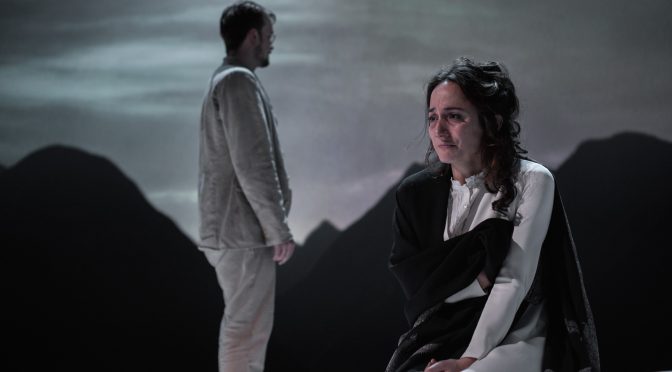A marriage not so much on the rocks as already wrecked is the focus of Ibsen’s 1894 play. Alfred and Rita are an odd couple of obsessive personalities struggling to share their lives and loves. Along with a ‘sister’, Asta, who creepily shares a pet name with their son, this is a peculiar, unstable love triangle that’s intense from the start. When their only child dies, pressure mounts and the play doubles as an examination of grief.
This is Richard Eyre’s third time adapting and directing Ibsen at the Almeida. Living up to the reputation of his Hedda Gabler and Ghosts, the production is made all the more remarkable by Tim Hatley’s stunning set – never has mid-century modern felt so claustrophobic – and some strong performances. Jolyon Coy and Lydia Leonard take the leads. Coy gives a nimble performance, on the surface a repressed academic, cold and plotting for his wife’s money, yet toying with the idea he might be our hero. Leonard is the sexiest Ibsen heroine you’re likely to see. Embodying a sensuality that has a serious point, she displays a moving, almost scary raw emotion. Eve Ponsonby’s Asta has the trickiest job – doting on the family while the tension surrounding her own desires builds magnificently.
The honesty between this trio is unrelenting and shocking. Home truths that would destroy any family are shouted out – it’s difficult to hear a mother say she wishes her son hadn’t been born. The observation that the parents are “vile and cruel” feels like an understatement. And Ibsen’s view of the human condition –reinforced by a book Alfred is writing on the “law of change” – is pretty grim. When hope enters the play, it feels natural and welcome. This hope may be only a glimmer, an exhausted sigh after all the crying, but it arrives just in time to secure the show’s status as a triumph.
Until 9 January 2016
Photo by Hugo Glendinning

